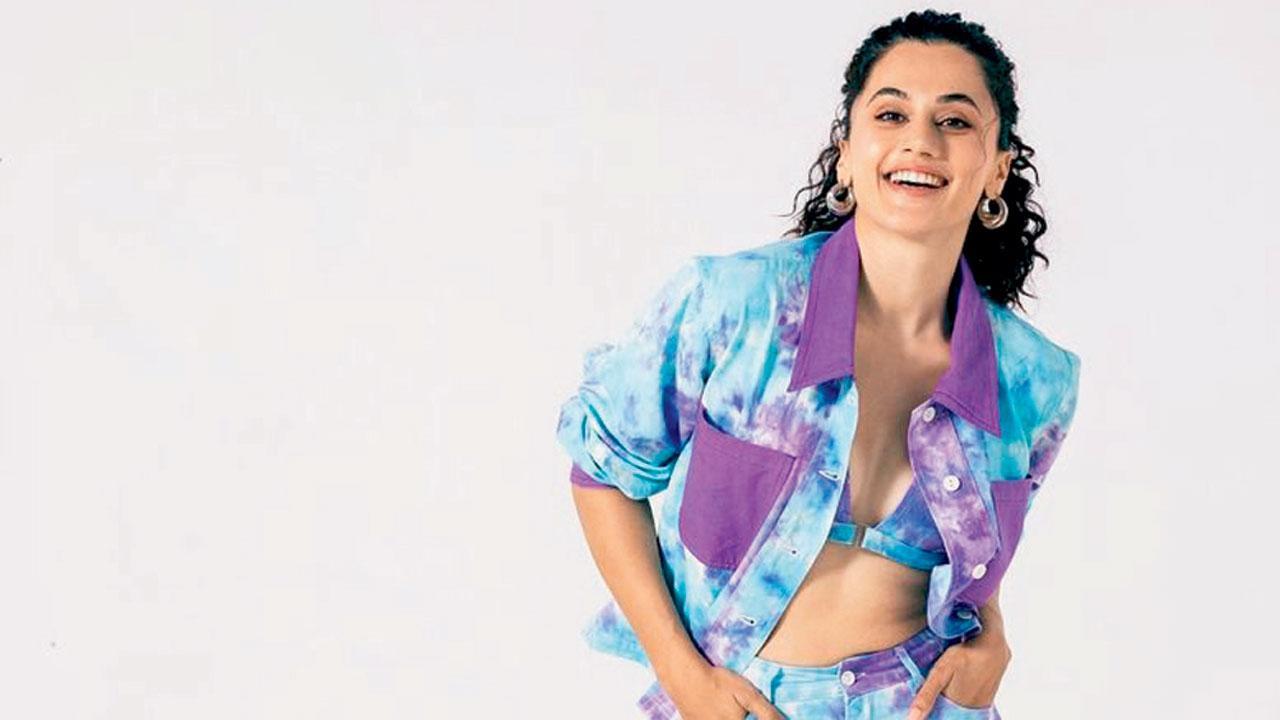There are times when people say, ‘Arey, women empowerment bohot ho gaya’-Taapsee Pannu
8:46 AM
Posted by Fenil Seta

Turning producer with Dhak Dhak and Blurr, Taapsee says she has to constantly fight the industry’s hesitancy to back female-led films
Mohar Basu (MID-DAY; July 9, 2022)
Juggling the two roles of actor-producer can’t possibly be easy. But Taapsee Pannu says the thought of turning producer was “brewing for a while,” resulting in the launch of Outsiders Films. So, while the actor in her is focusing on Shabaash Mithu, she is equally excited about her upcoming productions — Blurr opposite Gulshan Devaiah, and the all-women movie, Dhak Dhak. The decision to take the next step stemmed from her personal experiences.
She recounts, “For a few years [initially], there was a period when I was getting dropped from films because I was not a significant enough name. I kept hearing things like, ‘You suit the part, but you are not a name who people will take notice of.’ It was important to change that first. I had to push back against the recommendations that came for other actors. Now, I am accepted in the industry. I have finally come to a place where if I like a film, it will be made. It will be mounted well and get a release. When I reached here, I decided to call the shots on the stories that I want to tell.”
Through her production house, Pannu wants to back unheard stories. Her past offerings prove that she gravitates towards movies that narrate women’s experiences, batting for their empowerment. “There are times when people say, ‘Arey, women empowerment bohot ho gaya.’ The subject apparently feels jaded to the world. But I want to keep telling these stories because women empowerment hasn’t been given enough weightage in our films. [The subject of] heroes taking revenge or men saving women doesn’t feel exploited, but women standing up for their rights feels overexposed,” she exclaims.
Walking down this road won’t be easy, especially when the industry is still hesitant about betting money on women-led movies. The new producer understands that she will have to play by a few of the rules, at least initially, to have her voice heard. “Heavy female-oriented [subjects] still don’t get the kind of budget they deserve, because there aren’t as many takers as there should be. So, I constantly choose stories that have an undercurrent of what I wish to say. I don’t want my audience to leave without hearing the thoughts I want to convey to them.”
This entry was posted on October 4, 2009 at 12:14 pm, and is filed under
Blurr,
Dhak Dhak,
Interviews,
Taapsee Pannu,
Taapsee Pannu interview
. Follow any responses to this post through RSS. You can leave a response, or trackback from your own site.
Subscribe to:
Post Comments (Atom)
Post a Comment